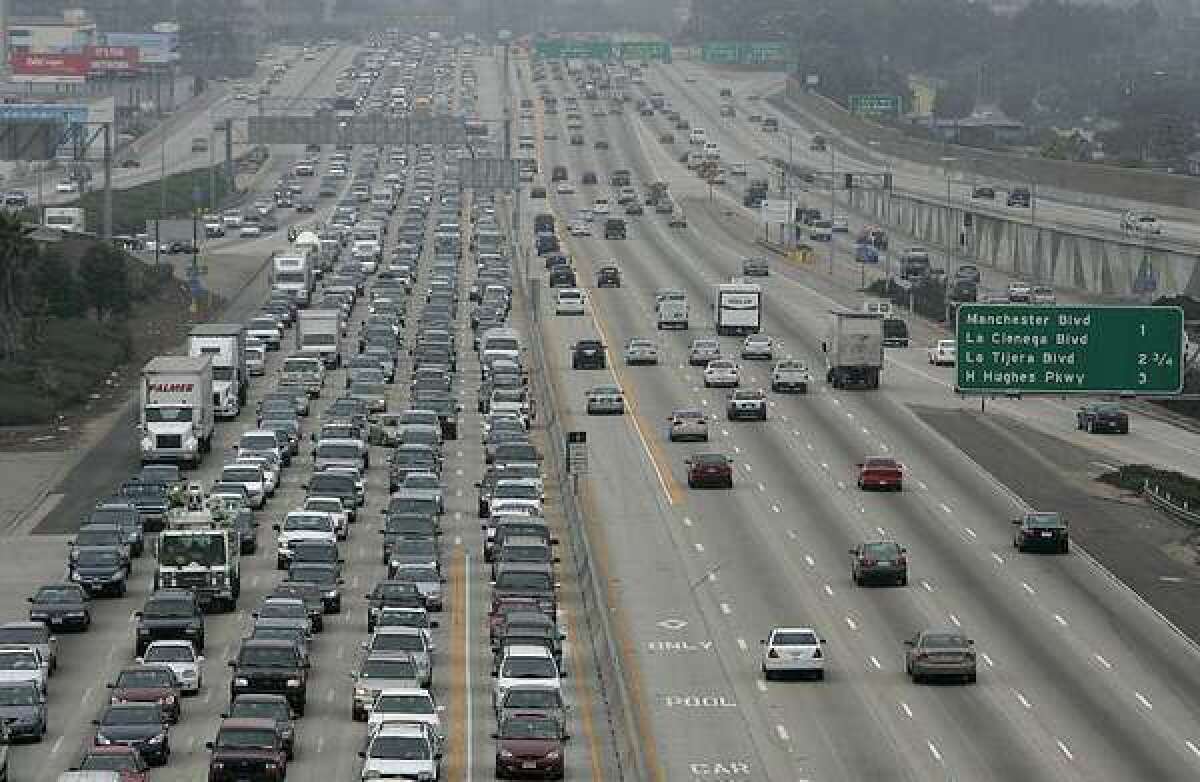Crash safety rating system proposed for rising tsunami of older drivers

- Share via
The National Highway Traffic Safety Administration will post a request online Friday morning soliciting comments in the Federal Register on a range of topics, including a proposed “Silver Car Rating System for Older Occupants.”
All of the comments are being sought for possible changes in the NHTSA’s New Car Assessment Program (NCAP), which provides vehicle information that enables consumers to compare the safety performance and features of new vehicles.
“A ‘silver car’ rating system in NCAP could be developed as a tool for providing crash safety information for older consumers,” the request for comments said.
“Are there aspects of vehicle performance, currently not evaluated by NCAP that would particularly address the needs of older vehicle occupants?” the request for comments said.
PHOTOS: Ten technologies for mature drivers
This is an issue because a silver tsunami of older drivers -- the largest number ever -- will be on the nation’s roadways. Already 16% of licensed drivers in the U.S. are 65 and older, according to AARP.
By 2025, one in five U.S. drivers will be 65 or older, the AARP says.
The Alliance of Automobile Manufacturers, a Washington-based group whose members include Toyota Motor Corp. and General Motors, quickly promised to provide “constructive comments.”
But the NHTSA is likely to get an earful on how cars and sport utility vehicles that are labeled as safer for seniors in a crash might be a turnoff to the very population it is trying to help.
“It’s a noble idea, but seniors don’t want stereotypically ‘older people’ cars,” said Jake Nelson, director of traffic safety advocacy and research for AAA.
Nelson said AAA looked into doing the same five years ago when it was working on its smart car features for older drivers program.
“We learned very quickly that you can’t really develop a top or best car for seniors program,” Nelson said. “It’s more about seeking the best features for the particular conditions seniors face, and they can be very different.”
Arthritis sufferers, for example, would be better served by cars with thick, easy to grasp steering wheels, pushbutton starting systems and automatic seat belts, Nelson said.
Shorter, older drivers would be best served by cars with telescoping steering columns and adjustable brake and gas pedals, Nelson said.
Still, it’s very likely that many will view the NHTSA consideration of a crash safety rating for seniors as something that is long overdue.
Federal crash statistics show that older drivers have the highest death rates in serious accidents.
The NHTSA is also seeking comments on a variety of other possible additions to the New Car Assessment Program.
Among them: blind spot detection (BSD) technology; advanced frontal lighting for enhanced nighttime visibility; lane departure prevention or automatic lane-keeping technologies; Crash Imminent Braking (CIB) and Dynamic Brake Support (DBS) technologies, and more.
Those who want to comment online should cite federal Docket No. NHTSA-2012-0180.
ALSO:
Porsche refreshes Panamera, adds a plug-in hybrid
Rebounding U.S. housing market is giving truck sales a big lift
Hyundai recall shows what can happen when many models share parts
More to Read
Inside the business of entertainment
The Wide Shot brings you news, analysis and insights on everything from streaming wars to production — and what it all means for the future.
You may occasionally receive promotional content from the Los Angeles Times.











